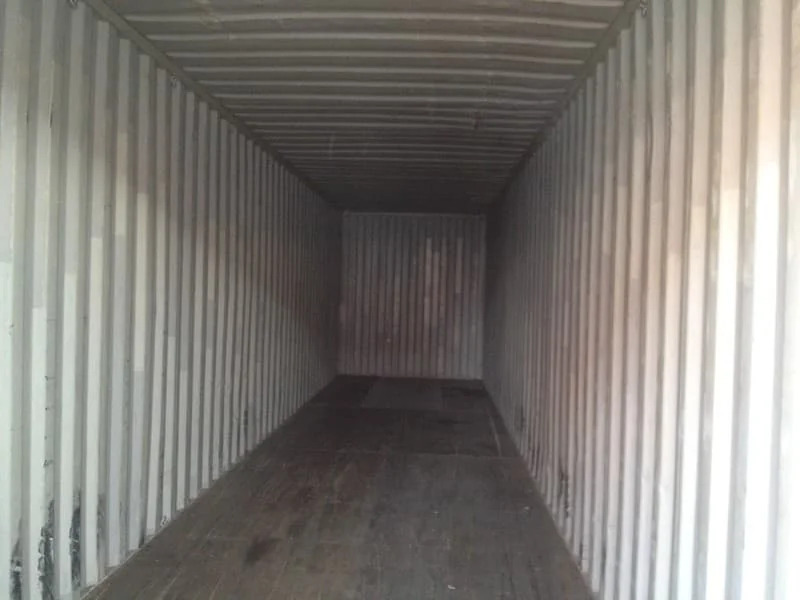Shipping containers are an excellent choice for transporting goods and storage. However, there are some rules when it comes to storing items in them. These rules ensure the security of your own, your family members or employees, and of course, your goods. Read on to learn more about the materials not to be stored in shipping containers.
Why Are Some Items Shouldn’t Be Stored?
Storing some items in containers can be dangerous, messy, or costly. For instance, anything flammable, explosive, or corrosive can be a risk to their immediate surroundings. Anything perishable has the potential of spoiling or creating mold. In order to keep a sanitary environment, most perishable items are prohibited in storage containers. Storage containers are secure and durable but storing costly items inside might not be a good idea.
Items You Shouldn’t Store in a Storage Container
Let’s take a deeper look at the items that you can’t store in a storage container.
- Radioactive Materials: Radioactive materials are hazardous and challenging to notice immediately when you’ve already been exposed to them. Most storage facilities do not have protection against radioactive effects for their personnel. That is why they rule storing radioactive materials out.
- Explosives, Weapons: Any item that has the potential of exploding is a danger to its immediate surroundings. Accidents can happen, and when one occurs, it is wise to be prepared so weapons, ammunition, or fireworks are not allowed in storage containers. Ammunition is extremely dangerous since it can become unstable in hot weather conditions.
- Electronics: Most shipping container companies don’t allow electronic devices. They can be damaged during transport even if labeled as “fragile.” Since they can’t be fixed to a place, any movement is an immediate threat to them. Another factor to take into consideration is humidity. Unless it is a climate-controlled unit, storing electronics in shipping containers is not a good idea. Batteries with their acidic contents are also a big concern; they can become dangerous, especially when stored for long periods of time. Remember that both cold and hot weather conditions are dangerous for batteries.
- Toxic Materials: As the name suggests, toxic materials are also problematic to store in shipping containers. Anything containing petrol or gas is extremely dangerous since it is highly flammable. Other hazardous materials such as fertilizers, paint thinner, solvents, medical supplies, and acids can create different types of hazardous toxic waste. Things like pressurized cans should also be left out of shipping containers. Extreme weather conditions can cause them to explode and cause damage.
- Living Things: Live animals and most live plants are prohibited from storing in international container shipping. It is incredibly unsafe for the well-being of your pets, especially if the container doesn’t have proper ventilation. Animals and plants will not have enough oxygen during long trips inside shipping containers. They can also attract various types of vermin and leave unpleasant odors. Several countries have strict regulations against shipping live animals, plants, or soil to protect their ecosystem from potential disasters or outbreaks.
- Perishable Items: It is never a good idea to place anything perishable inside a shipping container that is not designed especially for it. The harsh conditions during travel will definitely damage any perishable item inside, leading to molding, vermin, or other unwanted situations. Easily spoilt items such as fresh produce and frozen or refrigerated foods are the most common perishable items. They require the use of special insulated shipping containers or cold storage containers with proper cold chain and hygiene regulations. Another important reason is; perishable items can be contaminated by hazardous substances stored inside as well, which are dangerous for the cargo team and the customers. Nonperishable items such as canned goods, packaged rice or pasta, or unopened sauces can be stored safely since every piece is packaged.
Upholstered furniture can be included under “perishable items.” Yes, they will not rot, but they can develop mold, get infested with insects, or get chewed on by rodents.
Conclusion
For the safety of your goods, it is always advised to follow the rules we have mentioned above. For more general information about shipping containers, read our other blog posts such as;
“8 Things You Need to Know BEFORE You Buy a Shipping Container”,
“What is the Difference Between Shipping, Storage and One-trip/ New / Conex Containers”,


